Why I Am Sad After Sex? Understanding Postcoital Dysphoria!
How to handle these out-of-the-blue post-sex blues?
On Mar 28, 2023 – 10 minutes read

Why I am sad after sex? If feelings of sadness, depression, or emptiness arise after sexual encounters, rest assured, you’re not alone. This experience, often termed “post-sex blues,” can affect anyone.
In medical circles, this phenomenon is recognized as Postcoital Dysphoria (PCD), encompassing feelings of sadness, anxiety, or depression following sex. PCD may last for minutes or hours, occurring sporadically or persistently across sexual experiences.
Despite the satisfaction, enjoyment, and intimacy of the encounter, one may still experience post-sexual distress. The causes and severity of PCD vary widely, from hormonal fluctuations to emotional factors such as guilt, shame, or unresolved trauma.
PCD can significantly impact mental health and overall well-being, prompting individuals to engage in introspection. Questions may arise, such as whether the sexual engagement was truly desired or if it was an attempt to address underlying relationship issues.
Navigating these introspective inquiries can be challenging. If struggling to understand or cope with post-sex blues, seeking guidance from a sex therapist is recommended.
Why I Am Sad After Sex? Understanding Post-sex Blues or Postcoital Dysphoria
Postcoital Dysphoria, also known as Post-coital Tristesse (with ‘tristesse’ being French for ‘sadness’), describes a profound sense of sadness, anxiety, or agitation following consensual sex, even when the sexual experience was pleasurable and satisfying. This condition can persist for a few minutes to several hours.
Individuals grappling with Postcoital Dysphoria often struggle to articulate this melancholic sensation. However, it typically manifests as a starkly contrasting negative emotion following sex, contrary to the positive feelings experienced just moments before.
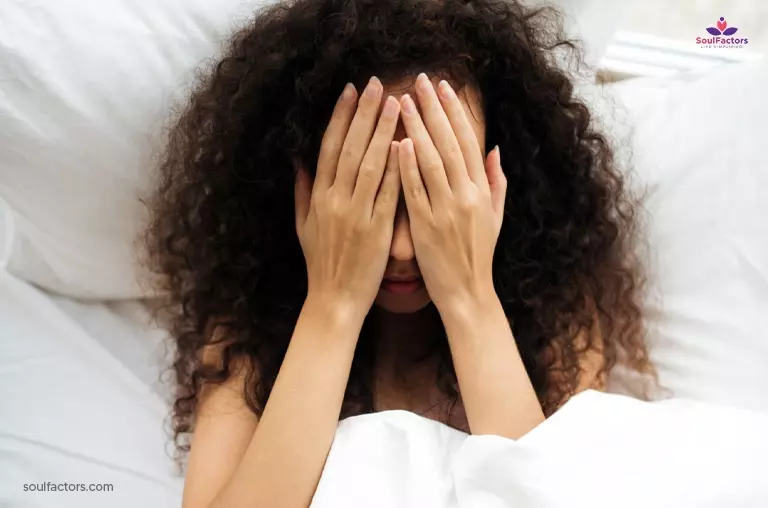
Some people may feel extremely sad and ask ‘Why I am sad after sex?’ Some individuals may even find themselves crying after orgasm, while others may become argumentative or agitated. They might attribute these feelings to personal fault or relationship issues, wondering, “Why do I feel gross and guilty after sex?” However, it’s important to note that these thoughts and emotions may not necessarily be the underlying causes of Postcoital Dysphoria.
While Postcoital Dysphoria is a relatively common condition, its precise cause remains elusive. Some theories suggest that the intense emotional bond formed during sex, coupled with the fear of its potential dissolution, may trigger feelings of melancholy. Other contributing factors may include conflicts within the relationship, a history of sexual abuse, unresolved trauma, or even spiritual considerations such as feeling sad after sex on a spiritual level.
Postcoital dysphoria is a common condition that a lot of people, regardless of their gender, experience globally. In 2015, research conducted at the Queensland University of Technology found that 46% of 230 female participants had encountered PCD at some stage in their life. While 41% of 1208 male participants experienced this condition.
Symptoms Of Post-sex Blues
PCD symptoms vary from person to person, influenced by factors such as personal history, environment, attitudes toward sex, and the context of the sexual encounter.
Some of the common symptoms of Postcoital Dysphoria are:
- Feeling sad, depressed, and empty
- Tearfulness
- Anxiety
- Aggression and urge to argue
- Agitation and Irritation

Why I Am Sad After Sex? Causes Of Postcoital Dysphoria
Although research on Postcoital Dysphoria has been limited over the years, there is no shortage of potential underlying causes for this condition. Some reasons why one might experience sadness after sex include:
- Hormonal changes: During sexual arousal, there is a significant rush of hormones in the body, including dopamine, oxytocin, and endorphins. After orgasm, the hormone levels suddenly drop resulting in a negative emotional response.
- Feeling about relationship: The intimacy of sexual experiences can prompt individuals to delve into their subconscious, where they may encounter feelings of anger or sadness. Feelings of sadness after sex can also arise from dissatisfaction within a relationship or harbored resentment toward one’s partner. This sentiment may also manifest when individuals engage in sex with the misguided belief that it will salvage or improve their relationship.
- Body issues: Negative views about one’s body can lead to feelings of resentment during sex. Any individual who feels ashamed and embarrassed about their body might experience disappointment after sex. They might also overthink how their partner views their bodies, which can all lead to after-sex blues.
- Feeling guilty about sex: Individuals’ attitudes toward sex are often influenced by their beliefs, which can shape their feelings about it, whether positive or negative. For instance, individuals raised in conservative environments where sex is stigmatized as immoral or impure may experience feelings of guilt after sexual activity. Similarly, experiencing depression after sex could signal that someone may not be emotionally prepared for intercourse. Feelings of emptiness following sex may indicate a lack of deep emotional connection with one’s partner.
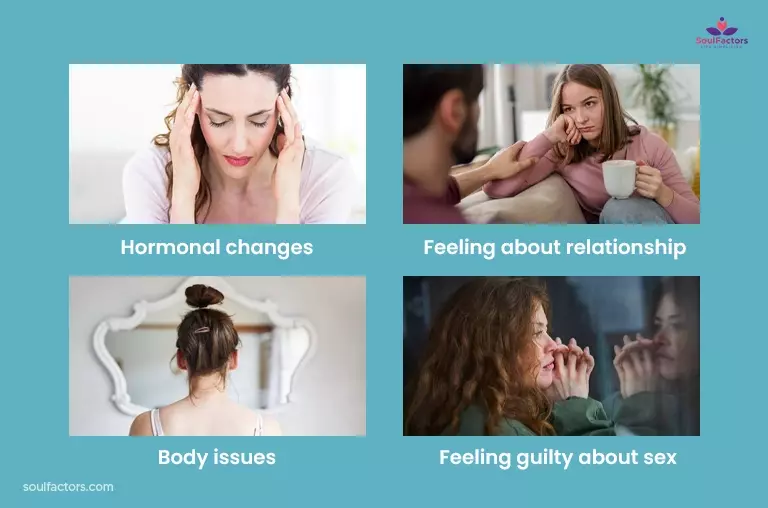
- Sexual performance: Often people are concerned about their performance after sex. Just as body issues can lead to overthinking and resentment after sex, concerns about one’s sexual performance can also make one feel anxious post-sex. The pressing thoughts of what their partner thinks about their performance can be a significant source of depression and anxiety.
- Absence of orgasm: This is another factor that can contribute to someone feeling insecure about their sexual performance. While orgasm is influenced by various factors, the absence of orgasm in one individual during sexual intercourse may cause anxiety and depression in the other person. However, it’s crucial to recognize that orgasm isn’t solely dependent on a partner’s sexual performance. The lack of orgasm in someone could be due to physiological, emotional, and social factors as well. Similarly, feelings of disgust after sex may also arise from various physiological, emotional, and social reasons.
- Past sexual abuse or trauma: A lot of vulnerability and fear arise due to past sexual abuse or trauma. Regardless of whether the trauma is addressed or not, sex can be a triggering event for the individual. This includes consensual sex that can trigger memories.
- Using sex as a cure: If someone feels that there is an issue in their relationship, sex might not be the answer for resolving that. While it may seem that sex can enhance the bonding in a relationship, it cannot resolve the underlying conflicts. In fact, It may complicate the situation further and take an emotional toll on the vulnerable party.
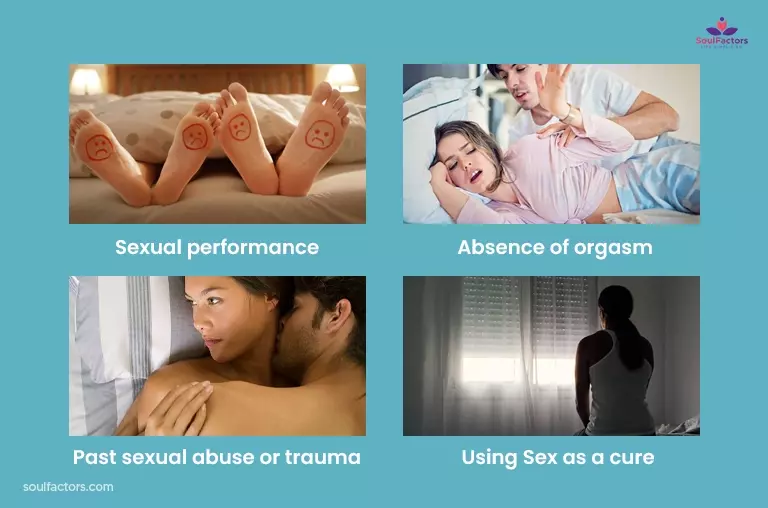
Ignoring that gloomy feeling after sex and pretending to be happy is not an answer in the long run. Understanding the causes, communicating them with the partner, and seeking professional help can help people improve their overall mental health and well-being.
Below are the coping strategies for dealing with Postcoital Dysphoria.
Why I Am Sad After Sex? Coping Strategies For Postcoital Dysphoria
The perception of sex differs from person to person. However, the feeling of negativity after sex can induce a lot of stress and anxiety. One is bound to be confused and tense about a situation where consensual and satisfying sex is leading to post-sex blues.
Fortunately, there are a few methods that can help an individual alleviate the stress and experience calm after sex. Below are some coping strategies to manage negative thoughts like why I am sad after sex and feelings after the “Lovemaking”:
1. Connecting With Your Body
Before forming an intimacy with someone else’s body, there are ways that you can get your equation with your body right. Being aware of your body’s needs and sensations can help you feel comfortable and settled in your own skin. This mindfulness could be practiced through breathing exercises, yoga, stretching, etc.
Bring your mind-body connection to harmony by identifying your feelings, thoughts, and perception through these practices. This will help you reduce anxiety and feel more grounded and present in the moment.
2. Analyze Your Post-sexual Routine With Your Partner
Post-sexual care aids partners in recuperating and reestablishing connection following a sexual encounter. It entails communicating and tending to your partner’s individual needs after sex. This practice extends beyond the realm of post-BDSM activities. A well-executed aftercare routine can assist partners in managing their post-sex emotions effectively.
Cuddling, talking, taking a hot shower, and having a good meal can all be part of the aftercare routine. These activities also give partners the space to discuss any concerns they might have about their sexual health.
3. Understanding Postcoital Dysphoria
Understanding your out-of-the-blue post-sex blues might be difficult and confusing. However, viewing it with a scientific approach can help you deal with it.
Firstly, acknowledging that Postcoital Dysphoria (PCD) is a genuine sensation and that you’re not alone in experiencing it can significantly reduce stress. It’s important to recognize that during and after sex, the body undergoes significant hormonal fluctuations, contributing to mood swings. Following the climax, the sudden decrease in dopamine and other hormones might evoke emotional and anxious feelings.
If you ask ‘why I am sad after sex?’ Awareness about PCD as a medical condition can help you reduce the shame or guilt about sex and manage post-sex emotions.
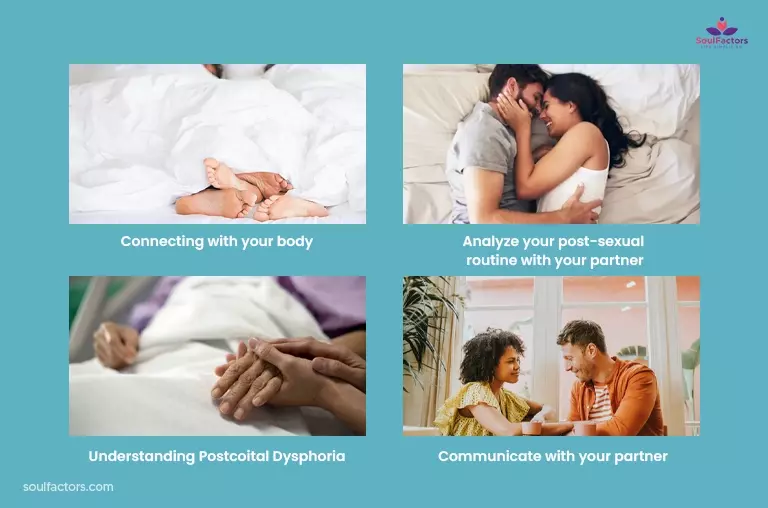
4. Communicate With Your Partner
It’s always beneficial to communicate your sexual and post-sexual needs with your partner. Expressing the type of support that helps you feel comfortable and connected during and after sex is essential. Whether it’s sharing intimate moments or engaging in reassuring conversations, these bonding activities and forms of foreplay play a significant role in alleviating post-sex blues.
Postcoital Dysphoria (PCD) can be triggered by various factors, including past sexual trauma and individual perceptions of sex. Openly discussing your sexual experiences with your partner can aid both of you in identifying and addressing potential triggers.
Sex should not be a taboo subject, especially within a partnership. Incorporating creativity into your intimacy can significantly improve your sexual well-being. This may involve exploring your personal definitions of intimacy beyond the bedroom and dedicating quality time to each other.
5. Seek Professional Help
Implementing intimacy-building strategies can be helpful in managing Postcoital Dysphoria (PCD), but seeking professional support can significantly enhance your journey toward sexual healing.
Given the complex nature of PCD’s causes, it’s essential to address them to alleviate the stress and anxiety that may arise during sexual encounters. Therapy provides a platform to identify underlying issues, such as relationship conflicts and past traumas, which may contribute to PCD.
Couple therapy could also prove beneficial for both you and your partner. A therapist can assist in developing effective communication strategies and post-sex routines to tackle the challenges associated with PCD. Sex therapy, specifically, is recognized for its efficacy in treating PCD.
6. Journaling
For someone who is not yet ready to seek professional help, they can start by analyzing the root cause of PCD on their own. Journaling can involve writing about your sexual experience and asking yourself questions like: “Have I felt the same way before in my lifetime?”, “Am I feeling bad because of the way I was treated?”, and “Am I regretting the whole sexual encounter?”

7. Being Easy On Yourself
Postcoital Dysphoria, commonly known as post-sex blues, is a prevalent experience globally, affecting individuals across genders. It’s crucial to recognize that this feeling is genuine and not to blame yourself for experiencing it.
Instead of asking yourself “Is something wrong with me?”, ask instead “why am I feeling sad after sex, and how do I manage my post-sex anxiety?” And then you go and communicate with your partner, yourself, or a professional therapist.
Why I Am Sad After Sex? Treatment For Post-Sex Blues
A blend of therapy, medication, and lifestyle adjustments could prove effective in treating postcoital dysphoria. It’s essential to understand that there’s no universal solution for PCD, and discovering the most suitable approach may involve some experimentation and adaptation for each person.
So, here are some options that might help people with postcoital dysphoria:
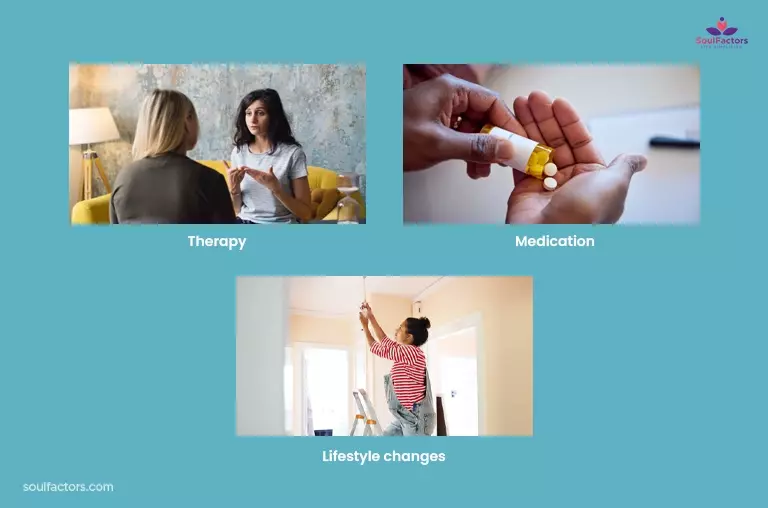
- Therapy: As said earlier, therapy can help identify the root causes of PCD and manage the symptoms. Besides, CBT or Cognitive-behavioral therapy can also help in dealing with depression and anxiety, which are commonly linked with PCD.
- Medication: Therapists might also suggest antidepressants, anti-anxiety medications, or other medicines that may be prescribed to help treat PCD symptoms. These medications help in regulating feelings of sadness, anxiety, and depression. However one must consult a professional healthcare provider before taking any such medications.
- Lifestyle changes: Lifestyle changes like improved sleep hygiene and routine, regular exercise, and stress-regulating practices may help in managing postcoital dysphoria symptoms. Meditation and yoga are other techniques that can help manage stress and anxiety.
Conclusion
Why I am sad after sex? or Postcoital Dysphoria, can be distressing. Irrespective of how good the sexual experience is, that negative feeling after sex can take a mental toll on anyone experiencing it.
There are numerous factors that can contribute to post-sex blues, and pinpointing them can be challenging. While self-reflection is often a recommended approach for managing PCD, it’s crucial to seek professional assistance if feelings of stress and anxiety persist.
With adequate knowledge, guidance, open communication, and treatment, it’s possible to alleviate PCD symptoms and enhance overall well-being. It’s important to remember that PCD is a common condition, and reaching out for help demonstrates strength rather than weakness.

Subscribe to Newsletter
Elevate your routine, stay on trend, and embrace a personalized beauty journey with our curated insights.




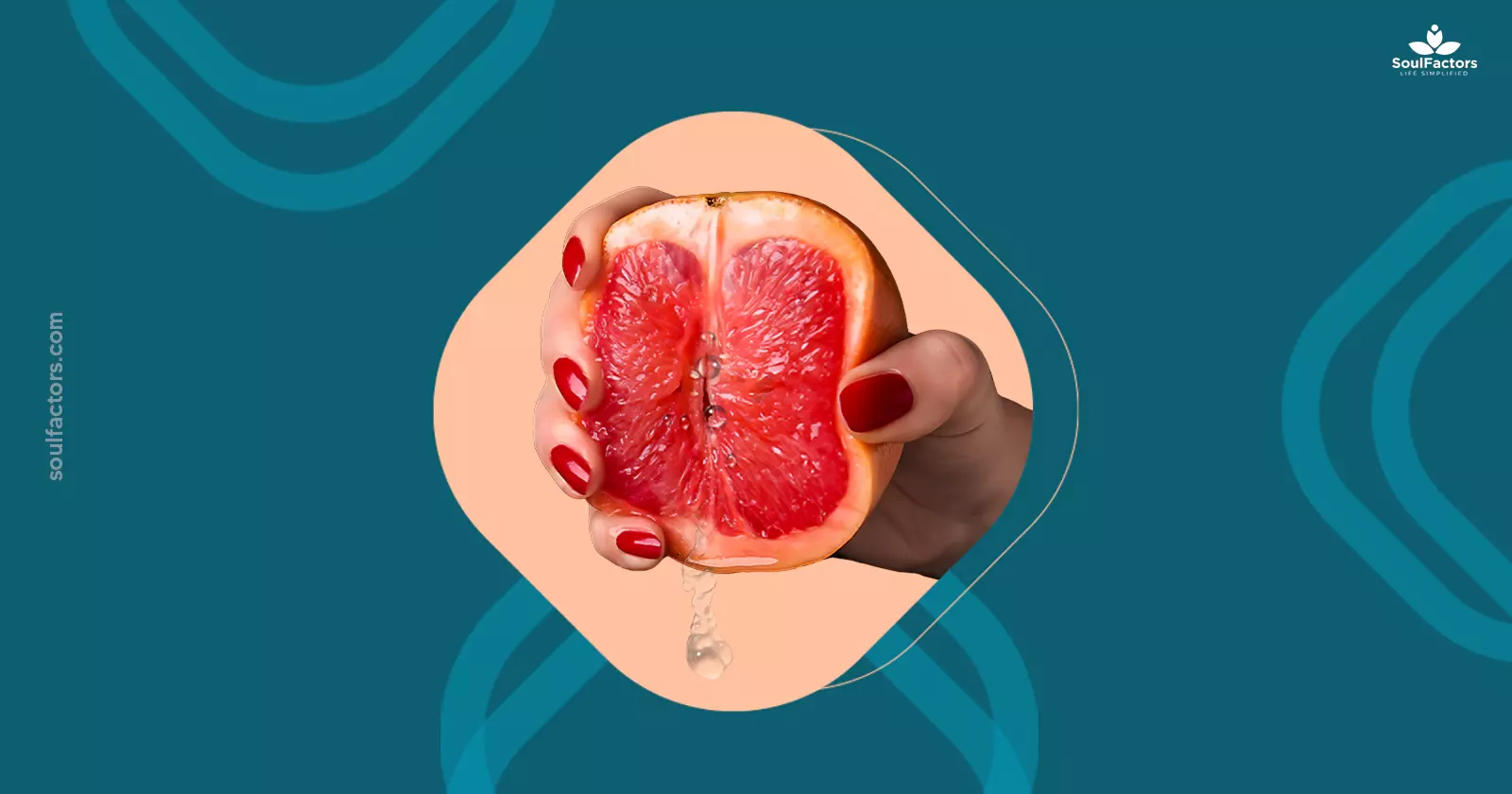
Write a Comment